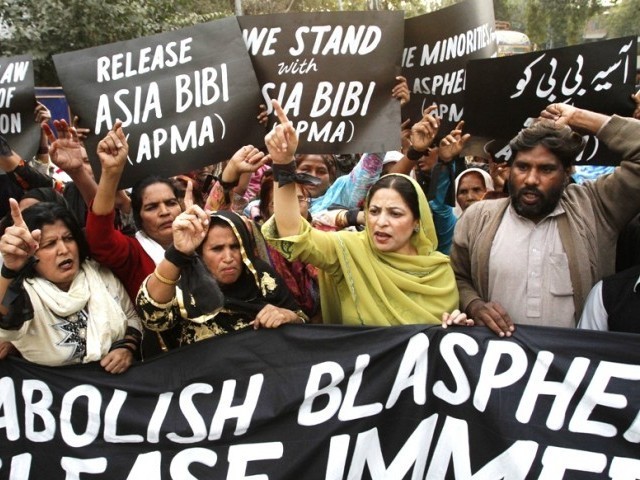
The Midwestern U.S. town of Ferguson, Missouri, and surrounding areas are bracing for more protests after a grand jury decided not to indict a white police officer who shot and killed an unarmed black teenager in August.
The decision, announced late Monday, sparked a night of violence that saw protesters loot businesses and set fire to cars and at least a dozen buildings.
The violence erupted despite appeals for calm from U.S. President Barack Obama and the family of 18-year-old Michael Brown, who was fatally shot by officer Darren Wilson on August 9. The family was expected to make a public statement at 11 a.m. local time Tuesday.
Protesters planned to demonstrate on Tuesday outside the courthouse in nearby Clayton, where the grand jury began meeting within weeks of Brown's fatal shooting August 9.
In nearby St. Louis, the police chief promised to beef up security following 21 arrests for vandalism, including broken storefront windows, on Monday evening.
"A large presence, very early on, will be a deterrent," Chief Sam Dotson said, according to Reuters news service. For Tuesday evening, "we'll have resources deployed."
The United Nations High Commissioner for Human Rights joined the calls for restraint Tuesday, urging protesters "to avoid violence and destruction" in the wake of the grand jury decision. In a statement, Zeid Ra'ad al-Hussein said, "People have the right to express their dismay and their disagreement with the grand jury's verdict, but not to cause harm to others, or to their property, in the process."
Worst violence in months
Although no serious injuries were reported, Monday night's unrest was the worst in suburban Ferguson in months.
At least 61 people were arrested there, largely for burlary and trespassing, according to The Associated Press. St. Louis County Police Chief Jon Belmar said at least a dozen buildings were set on fire, most of them destroyed. He said there were no reports of injuries.
"Those are businesses that may never come back. So, frankly, I'm heartbroken about that," Belmar said.
"Now the good news is we have not fired a shot," he said. "As far as I know, we don't have any serious injuries to police officers. They got banged up a little bit with rocks. One lieutenant from the patrol got hit in the head with a glass bottle, but ... as far as I know, we haven't caused any serious injuries tonight."
Early Monday night, police used smoke and tear gas to disperse the protesters, some of whom set police cars on fire and threw objects at police. Sporadic gunfire could be heard in the neighborhood.
Firefighters on Tuesday morning continued monitoring the scene in Ferguson, dousing the charred remains of some businesses, The Associated Press reported. Though broken glass still littered the sidewalk in front of looted stores, downtown streets were calm.
Schools in Ferguson and surrounding cities cancelled Tuesday classes.
Protests spread to other cities
Demonstrations were also held in cities across America. At Times Square in New York City, protesters held signs decrying "police tyranny" and chanted the "Hands Up, Don't Shoot" slogan that has become popular at rallies against police violence.
In Chicago and Oakland, California, protesters flooded freeways, blocking cars with their hands held in the air. In Washington, D.C., a small crowd of protesters also gathered outside the White House.
Brown's shooting death inflamed tensions in the predominantly black St. Louis suburb, which is patrolled by an overwhelmingly white police force.
The shooting sparked weeks of sometimes violent protests and looting. Adding to the tension was the often heavy-handed response by police, who used armored vehicles and tear gas.
Brown's family members, who have called for restraint, issued a statement saying they were "profoundly disappointed" at the ruling.
Lawyers for Wilson said in a statement that the grand jury's decision shows the officer "followed his training and followed the law" during the confrontation with Brown.
Appeal for calm
In a statement from the White House, President Barack Obama acknowledged some are "deeply disappointed" at the ruling, but called on protesters to be peaceful.
Attorney General Eric Holder said federal investigations continue into the shooting and into whether the Ferguson Police Department is engaging in unconstitutional practices.
Calling Brown's death a "tragedy," Holder said it is "far more must be done to create enduring trust" between law enforcement and the communities they serve.
Accounts of August 9 shooting
Stories differed as to what happened in the August 9 shooting. Lawyers for Brown's family said he was trying to surrender when the officer shot him. Wilson's supporters said he shot Brown in self-defense.
St. Louis County Prosecutor Robert McCulloch said the grand jury met for 25 days and heard 70 hours of testimony from 60 witnesses.
McCulloch praised the jurors for completing "this monumental responsibility," and he lauded the "unprecedented cooperation" between federal investigators and local authorities.
He said that much of the witness testimony contradicted evidence from the scene and that many witnesses later changed their stories, admitting they had not actually observed the confrontation.
The prosecutor also extended his sympathy to Brown's family over his death. McCulloch concluded his prepared remarks by saying he joined with the family, clergy and others "in urging everyone to continue the demonstrations, continue the discussion … but do so in a constructive way."
The father of the slain teenager appealed for calm last week. In a video posted online, the elder Michael Brown said hurting others or destroying property is "not the answer" to frustration over what is seen as racial injustice.













